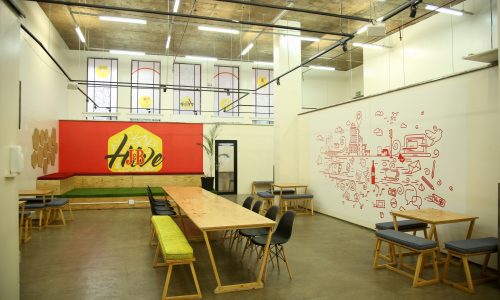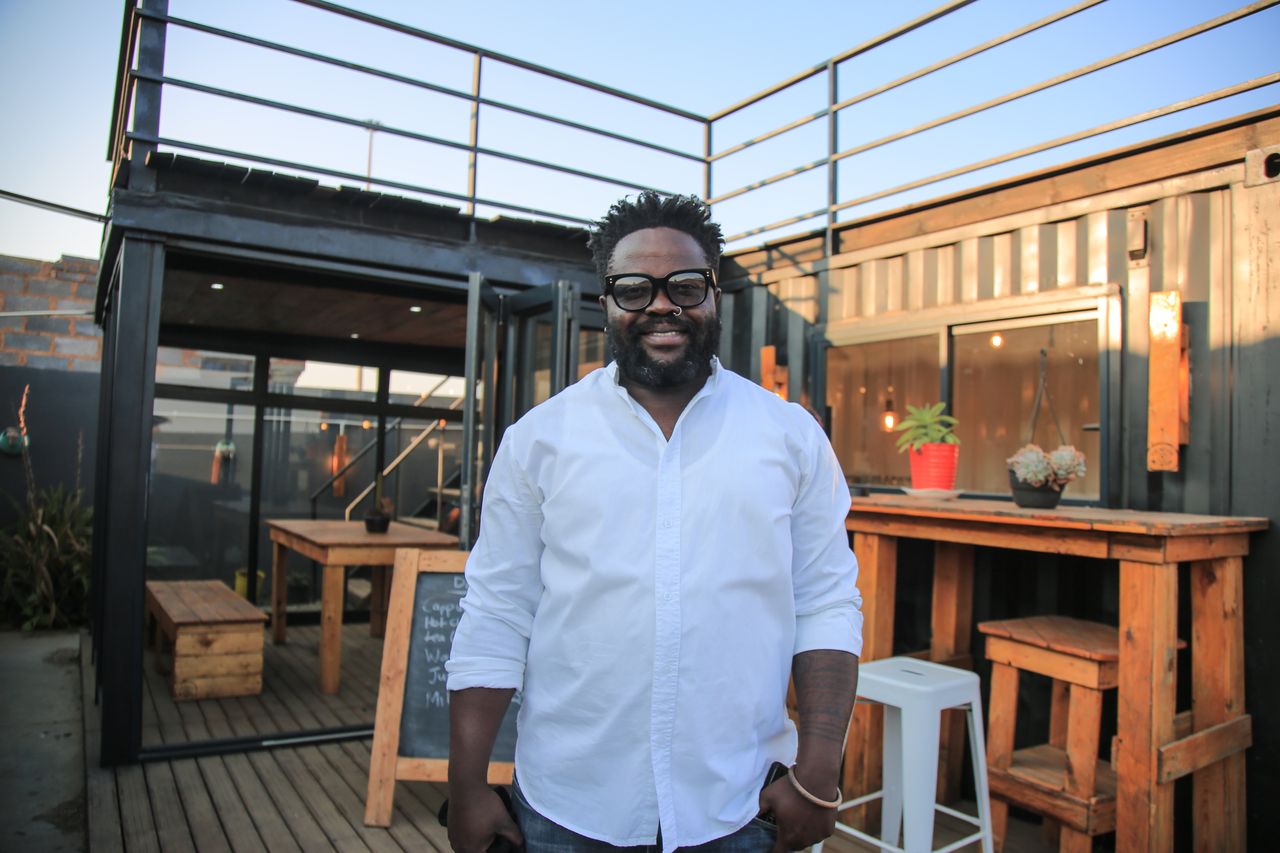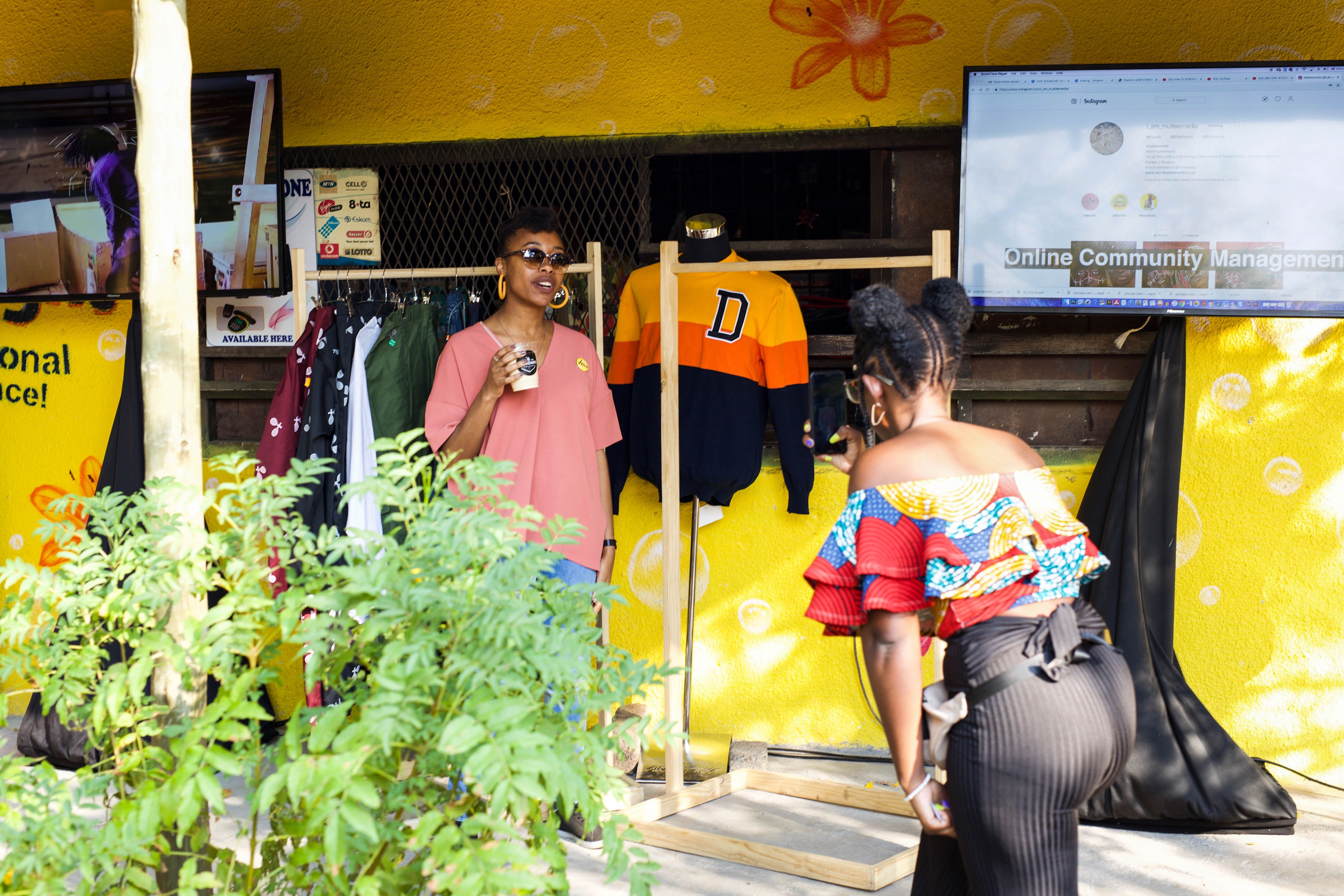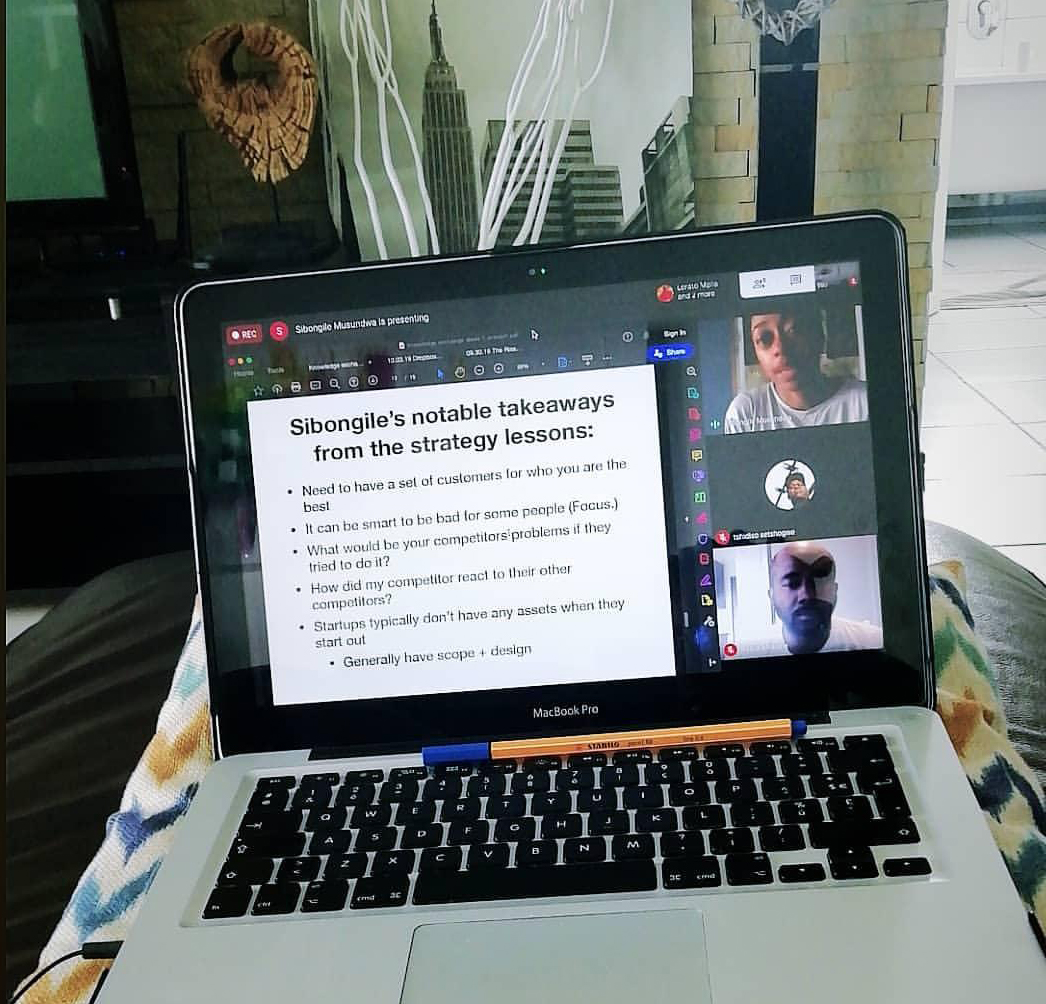
In Good Times & Bad Times
A 6-minute read ☕☕…
Back from a journey of learning and growth, our director’s first order of business was sharing this knowledge with our community. This article contains the experiences and topics that our members discussed in our inaugural (video) gathering since the beginning of the national lockdown.

Our first talk was about the art of strategy and how this can help businesses adapt and grow, even in these trying times.
In times of panic, the main objective of any business is to survive. This mindset can make it hard to see the bigger picture and usually leads to short-term benefits. A clear strategy helps a business stay focused in the market, especially when dealing with competitors. Without this strong direction, a business can be easily trapped into making very expensive mistakes.
To put this in an extreme context, imagine a fictional story about an established vegan restaurant getting outwitted by a new competitor, Gloria’s food truck. Both businesses offer similar menus; but Gloria’s can do it for less because she saves on rent and other overheads. Soon Gloria’s grows popular for their distinctive value offering (vegan food that doesn’t cost a fortune); pressuring the established restaurant to cut some of their prices (the dreaded price war).
While their customers delight at the lowered prices, the restaurant is forced to cut some of their staff and other expenses.
During this time, Gloria’s begins operating at events and social markets; which the established competitor can’t afford yet. By doing this, Gloria’s has trapped their competitor into lowering their prices – and entered a whole new market while their established competitor was busy playing defense, instead of honing in on their key sources of differentiation..
At every level of an organization, a strategy guides the business’ choices like a map. If a strategy only covers top-level decisions or can’t be used to make quick, crucial choices – then it is not a good one. If an owner leaves a business and the team suddenly have no idea what to do, that’s also a sign that the business’ overall strategy needs a lot of work. Today’s most successful businesses have clear, ever-evolving strategies that have helped them build a certain reputation over time. Their customer experiences are defined by being distinct. From the ambience in their stores to the feeling of unwrapping their products. Everything holds up to the promise in their marketing.
With our Director away for 6 weeks of a 7 month programme, the J&B Hive’s own strategy was tested. The team still had to organize events, support our community and grow our space in her absence.
During the knowledge session, Sibongile mentioned that some of the most complex strategies can be summed up in a list of 5-7 key points. For our organization, some of these key points are about being accessible to urban creative entrepreneurs, providing them with a starter-kit of resources to help their businesses grow.

This can be seen in our decision to set up in Braamfontein, an area accessible to creative entrepreneurs from around Johannesburg and other parts of South Africa. It also informed our decision to make knowledge-sharing and connecting our community our priorities. In times when our physical space is no longer an option, focussing on accessibility tells us to pay extra attention to problems like; “How do we sustainably deal with data costs and support our member businesses?” or “What was the true value of our events? – can our community still get this?”
By sticking to this strategy and strengthening it over time, it has helped us create assets like our space, network and bona fide relevance with creative entrepreneurs. If you could figure out our complete strategy, you would be able to see how valuable these 3 things are to our broader goals.
I didn’t develop this strategy ‘by myself’ after ‘going to Harvard’. But seeing the idea of a strategy being taken apart made me realize that, “Actually this has been our strategy all along. – Sibongile
While there’s no ‘recipe’ to cooking up your own strategy, the first part of the session made it clear that looking at the strategies of other businesses was one of the best ways to get our minds thinking about the idea as a whole. Whether we’re personal brands, businesses that deal with clients or any organization trying to create a shift in strategy, studying the game is always a good way to get started.
Strategy in Effect
While a good strategy keeps you moving according to plan, a great one helps you move, even when things do not go according to plan. The second part of the session saw our members discuss how their business’ strategies have been challenged by the lockdown.
“Now this is a story all about how, our lives got flip-turned upside down…”
While many people see Yellow TV as one thing. We’ve always known that our strength was not importing tablets from China and sticking them in ridesharers’ backseats. Our strength was finding a smart slot to communicate with our audience at a time when we knew they could be watching/ listening. With the capabilities of devices and an expected growth in Africa’s digital capabilities, we see our continent’s latest challenge as an opportunity to grow from adversity. – Radile Mokone, Yellow TV
Our key focus has always been on social events as well as our bar, so even the first news of this pandemic threatened our business. While we’re still trying to bounce back, the choices we made about our staff have really shined during this time. By working with different partners on a contractual business, our (core) bar staff were the only ones fully employed. At the time, this helped us manage the expectations of our salaries (expenses). Today it means that we can still pay our staff, even while we try to figure out our next move.
One of the realities of this lockdown is that incomes will be compromised and difficult decisions will be made. To me, it’s relieving to know that we don’t have to throw our employees under the bus. Especially when we need each other the most. – Lerato Mpila, Satori Events
From ‘amplifying’ audiovisual experiences in physical spaces, we now have to think about how this works without live events. Currently, we’re considering ways we can improve the capabilities of all the online meetings, hangouts and “official addresses” taking place. So for us, this lockdown is also an opportunity to grow from adversity. – Tshidiso Setshogwe, His & Hers Jams
With no employees to cover and a business primarily-focused on a creative/ artistic benefit, I appreciate this as a time of evaluation. Our main focus has been looking at the past of the business, seeing how we can improve our offering and trying to empower ourselves so we can be better when we start moving. – Sharp-Lee Mthimkhulu, Studio Leetchi
Even under pressure, a strategy can keep us focused while reassuring our commitment to the plan. As the crew wrapped up the session they started discussing future plans. My main takeaway from this part was that even though this is a difficult time especially in Africa; the most dangerous thing we can do is acknowledge that difficulty and accept our defeat.
By squinting hard enough to see the opportunities in this, even the impossible tasks begin to show a starting point. Even those of us who tweet about the unique condition of disadvantaged communities could see this as a chance to figure out a food industry that’s more accessible to everyone, yet economical at the same time… 💡
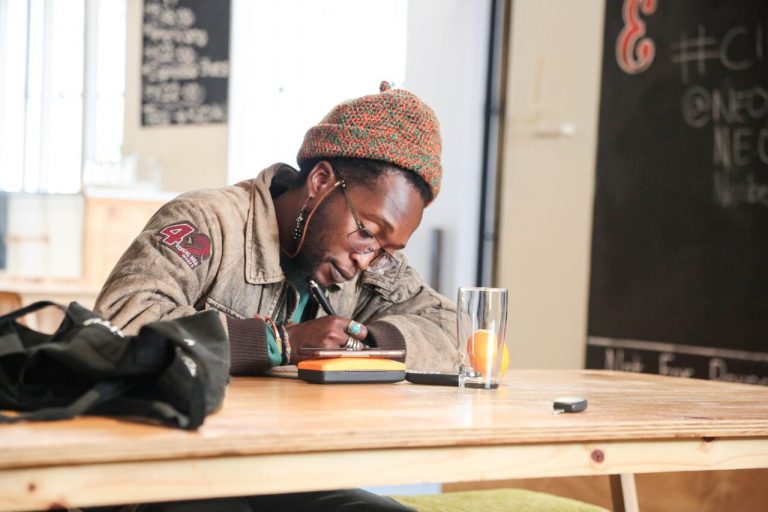
Anyway, there were 5 key takeaways from the talk. Summarised by Sibongile below:
- We need to have a focused set of customers that we aim to be the best for.
- It can be smart to be bad for some people/ markets.
- Always consider what it is about your organization that would make it hard for competitors to steal your shine.
- Also study how your competitors defend themselves against other businesses.
- It’s okay to start without any assets. If your target market and “distinctiveness” is on point, you’re basically starting where most great businesses started.
Written by: Lungelo Hlela (I am Multeemedia)
– – – – –
Lungelo Hlela is a Digital Copywriter based in Johannesburg, South Africa. When he’s not writing for brands, most of his work includes themes about social issues, history and popular culture. Follow him @lungelosam for more of his existentialist ramblings and romantic ideals.

